Street Art to Promote Representation and Epistemic Justice among Marginalized Rural Zimbabwean Youth
Street Art to Promote Representation and Epistemic Justice among Marginalized Rural Zimbabwean Youth was a Changing the Story Phase 2 ECR project.
This project focused on rural Binga, a significantly underdeveloped rural district located in Matabeleland North in Zimbabwe. The area is largely inhabited by the minority group Tonga people who have been subject to marginalisation, social violence and exclusion. The project seeks to document these through participatory street art with the aim of encouraging social cohesion, making their experiences and knowledge visible, and contributing to epistemic justice. Epistemic injustice means a person is in a disadvantaged position to influence public discourse and is marginalised due to unfair treatment about knowledge, participation in communicative practices or representation (Fricker, 2015). This project generates a democratic space by giving Tonga youth an opportunity to tell the stories about the lives they value and doing research with Tonga youth rather than on them to promote social awareness
The aims of the project were to:
- Provide a platform for Tonga youth to voice their aspirations and to address the social powerlessness they hold.
- Identify how youth and CSOs can work together to address social cohesion and epistemic injustices.
- Bring the issues of marginalised youth to the attention of the policy-makers, local stakeholders, discuss the role of participatory arts as an intercultural learning tool for deconstructing the bias against such groups.
The project involves NGOs, government agencies, museums, and art galleries, and urban university youth to dismantle longstanding stereotypes against the Tonga community. The partners of this project are Batonga Community Museum in Binga and the Basilwizi Yrust youth NGO.
The Batonga Community Museum helped with the design of the art-based methodology, art training, exhibition and dissemination of artefacts. The NGO worked with youth on design, production and delivery of artefacts and be active in workshops in ensuring communication between stakeholders. Working with these two local organisations can create transformational platforms and new synergies which can contribute to building long-lasting social relationships.
The following images were taken during the project's 5 day street art workshop in August 2019:
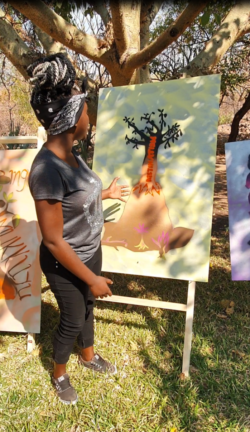
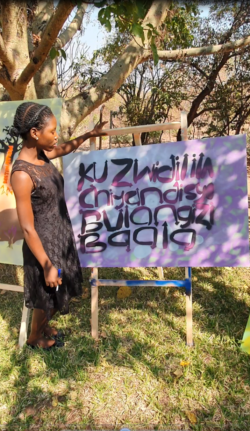
The graffitis produced by the youth have been exhibited in Bulawayo at the National Art Gallery, at the National Museum in Harare and at the Midland state university in Gweru.
The following images were taken during the exhibitions:
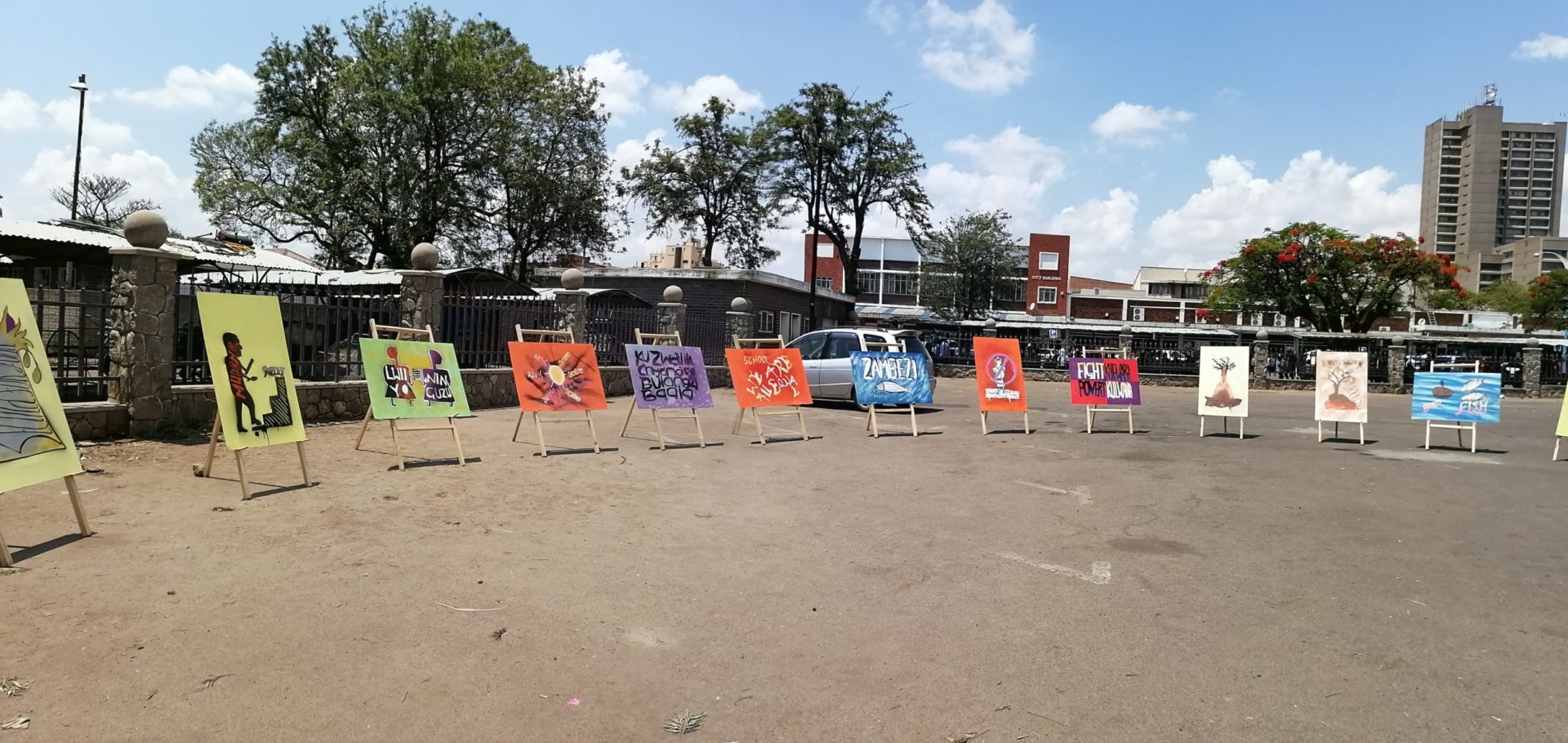
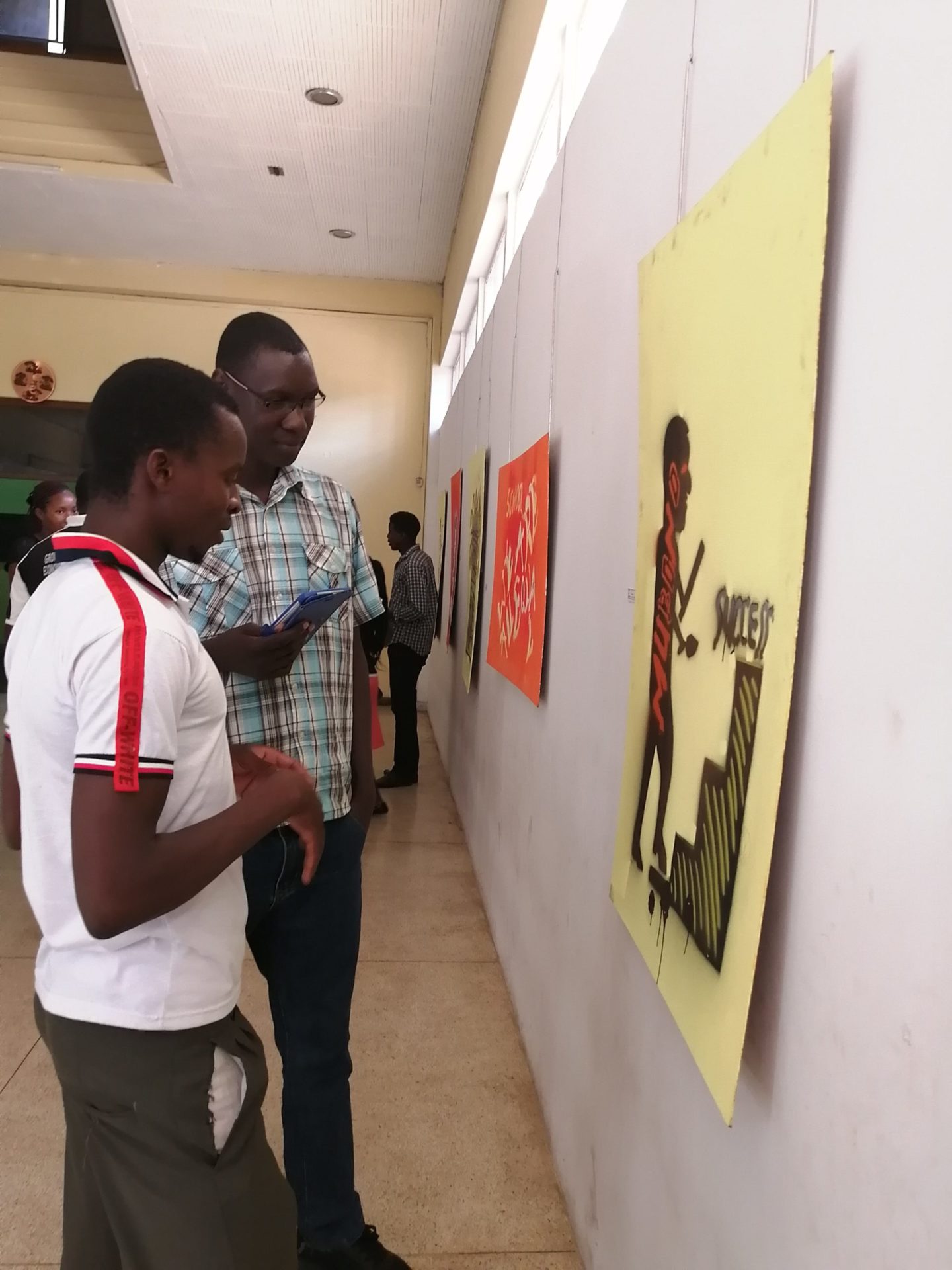
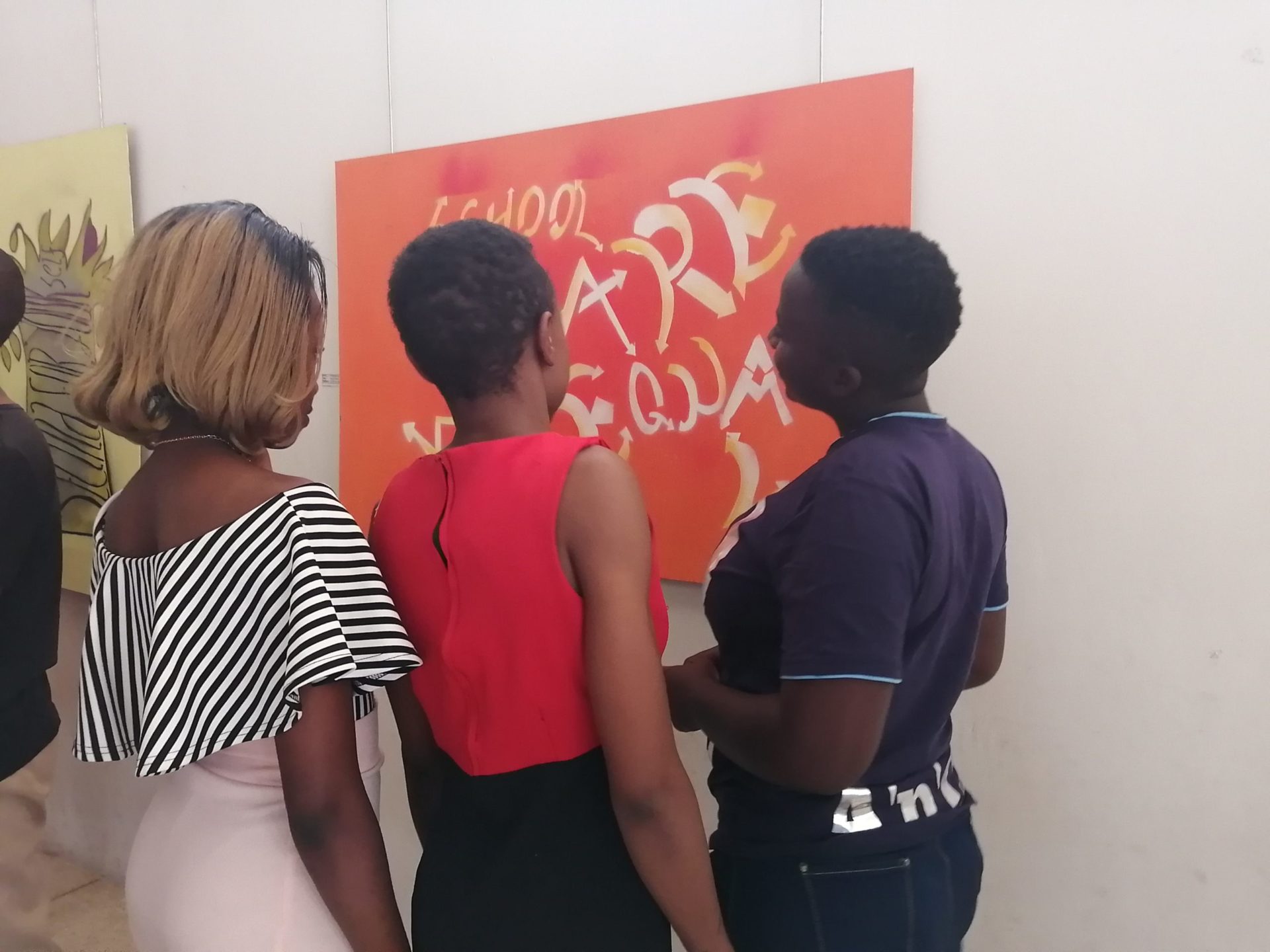
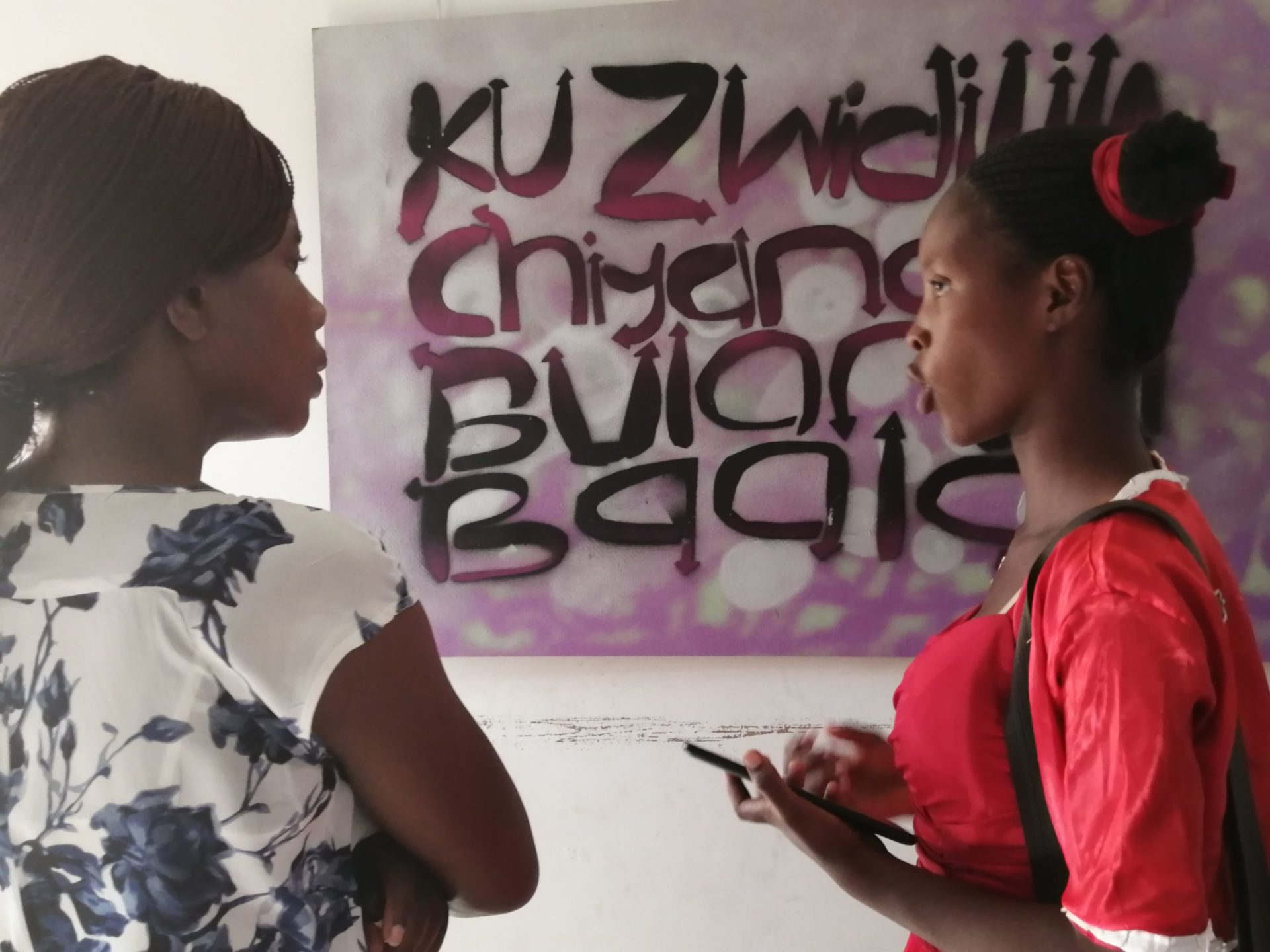
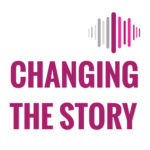
Project Location
Rwanda
Resource Archive
Search or browse the resource archive for films, reports, toolkits and other resources produced by the Changing the Story and its commissioned projects. Items relating to Zimbabwe are listed below:
| Title | Summary | Author | Categories | Tags | doc_categories_hfilter | doc_tags_hfilter |
|---|---|---|---|---|---|---|
| A reflection on the graffiti training workshop held at BaTonga Museum, Binga. | Blog (2019/09/12) A reflection on the graffiti training workshop held at BaTonga Museum, Binga. | Willard Muntanga | Event, Phase 2, Young Changemakers, Zimbabwe | format: blog, language: english, subject: participatory arts, subject: youth | event phase2 changemakers zimbabwe location | blog language-english subject-participatory-arts youth |
| Street Art to Promote Representation and Epistemic Justice: Book of Art | Street Art to Promote Representation and Epistemic Justice among Marginalized Rural Zimbabwean Youth sought to generate democratic space by giving the Binga youth an opportunity to tell the stories they … | Zimbabwe | language: english, subject: participatory arts, subject: street art | zimbabwe location | language-english subject-participatory-arts subject-street-art | |
| Scenes from a Changing the Story Graffiti Art workshop | 'Street Art to Promote Representation and Epistemic Justice among Marginalized Rural Zimbabwean Youth' is a Changing the Story Phase 2 ECR project. This is one of several films documenting the … | Phase 2, Young Changemakers, Zimbabwe | format: film, SDG 10 Inequalities, SDG 11 Sustainable Cities, subject: street art, subject: youth | phase2 changemakers zimbabwe location | film sdg-10-inequalities sdg-11-sustainable-cities subject-street-art youth | |
| Policy Brief: Remodelling the intergenerational moringa industry | Remodelling the intergenerational moringa industry to support local economic development in Binga, Zimbabwe Policy brief from Follow-on Fund project, Transnational and Intergenerational Exploration of Ecological Heritage. | Phase 3, Zimbabwe | language: english, SDG 10 Inequalities, SDG 13 Climate, SDG 3 Health and Well-being, SDG 8 Work, subject: policy | phase3 zimbabwe location | language-english sdg-10-inequalities sdg-13-climate sdg-3-health-and-well-being sdg-8-work subject-policy | |
| Street Art to Promote Representation: An Exhibition Series in Zimbabwe | Blog (2020/04/07) Street Art to Promote Representation: An Exhibition Series in Zimbabwe | Phase 2, Zimbabwe | format: blog, language: english, subject: participatory arts, subject: youth | phase2 zimbabwe location | blog language-english subject-participatory-arts youth | |
| Interview with a young changemaker (Binga, Zimbabwe) | Interview with a young changemaker (Binga, Zimbabwe) | Young Changemakers, Youth Research Board, Zimbabwe | format: film, language: english, subject: street art | changemakers youth-research-board zimbabwe location | film language-english subject-street-art | |
| Moringa: The Binga Tree Story | Photo essay on the use of the moringa tree in Zimbabwe by Follow-on Fund project, Transnational and Intergenerational Exploration of Ecological Heritage. | Phase 3, Zimbabwe | language: english, SDG 10 Inequalities, SDG 13 Climate, SDG 3 Health and Well-being, SDG 8 Work | phase3 zimbabwe location | language-english sdg-10-inequalities sdg-13-climate sdg-3-health-and-well-being sdg-8-work | |
| Post-Conflict Participatory Arts Socially Engaged Development | This book investigates the power of art to enhance human development and to initiate positive social change for individuals and societies recovering from conflict. Edited by Changing the Story partners … | Diego Alfonso, Dr Aylwyn Walsh, Dr Claudia Pineda Marín, Dr Laura K. Taylor, Dr Scott Burnett, Dr Tendayi Marovah, Edwin Cubillos, Joshua Chikozho, Nub Raj Bhandari, Willard Muntanga | Colombia, Kenya, Lebanon, Nepal, Uganda, Zimbabwe | format: article, language: english, SDG 11 Sustainable Cities, SDG 16 Institutions, SDG 17 Partnerships, SDG 4 Education, subject: participatory arts | colombia kenya lebanon nepal uganda zimbabwe location | article language-english sdg-11-sustainable-cities sdg-16-institutions sdg-17-partnerships sdg-4-education subject-participatory-arts |
| Graffiti Art (Zimbabwe) | 'Street Art to Promote Representation and Epistemic Justice among Marginalized Rural Zimbabwean Youth' is a Changing the Story Phase 2 ECR project. This is one of several films documenting the … | Phase 2, Young Changemakers, Zimbabwe | format: film, SDG 10 Inequalities, SDG 11 Sustainable Cities, subject: street art, subject: youth | phase2 changemakers zimbabwe location | film sdg-10-inequalities sdg-11-sustainable-cities subject-street-art youth | |
| Graffiti as a Participatory Method Fostering Epistemic Justice | Graffiti as a Participatory Method Fostering Epistemic Justice and Collective Capabilities among Rural Youth: A case study in Zimbabwe is a chapter by Tendayi Marovah and Faith Mkwananzi in the … | Dr Faith Mkwananzi, Dr Tendayi Marovah | Phase 2, Zimbabwe | format: article, language: english, SDG 10 Inequalities, SDG 11 Sustainable Cities, subject: street art | phase2 zimbabwe location | article language-english sdg-10-inequalities sdg-11-sustainable-cities subject-street-art |
| Graffiti art in progress | 'Street Art to Promote Representation and Epistemic Justice among Marginalized Rural Zimbabwean Youth' is a Changing the Story Phase 2 ECR project. This is one of several films documenting the … | Phase 2, Young Changemakers, Zimbabwe | format: film, SDG 10 Inequalities, SDG 11 Sustainable Cities, subject: street art, subject: youth | phase2 changemakers zimbabwe location | film sdg-10-inequalities sdg-11-sustainable-cities subject-street-art youth | |
| Carrington's Graffiti Art | 'Street Art to Promote Representation and Epistemic Justice among Marginalized Rural Zimbabwean Youth' focuses on rural Binga, a significantly underdeveloped rural district located in Matabeleland North in Zimbabwe. The area is … | Phase 2, Young Changemakers, Zimbabwe | format: film, SDG 10 Inequalities, SDG 11 Sustainable Cities, subject: street art, subject: youth | phase2 changemakers zimbabwe location | film sdg-10-inequalities sdg-11-sustainable-cities subject-street-art youth | |
| Decolonising Knowledge | Changing the Story has produced a series of short videos which address the various aspects of safeguarding in international development research. The aim of the series is to provide you … | Safeguarding, Zimbabwe | format: film, language: english, SDG 10 Inequalities, SDG 4 Education | safeguarding zimbabwe location | film language-english sdg-10-inequalities sdg-4-education | |
| What does a decolonised research culture look like? | Blog (2020/06/30) What does a decolonised research culture look like? | Dr Faith Mkwananzi, Dr Melis Cin | Phase 2, Zimbabwe | format: blog, language: english, subject: reflections | phase2 zimbabwe location | blog language-english subject-reflections |
| Arts for thought: I am a changemaker, so are all of us | Blog (2020/03/09) Arts for thought: I am a changemaker, so are all of us | Phase 2, Zimbabwe | format: blog, language: english, subject: reflections | phase2 zimbabwe location | blog language-english subject-reflections | |
| Interview with a young changemaker (Zimbabwe) | Interview with a young changemaker (Binga, Zimbabwe) | Young Changemakers, Youth Research Board, Zimbabwe | format: film, language: english, subject: street art | changemakers youth-research-board zimbabwe location | film language-english subject-street-art |
